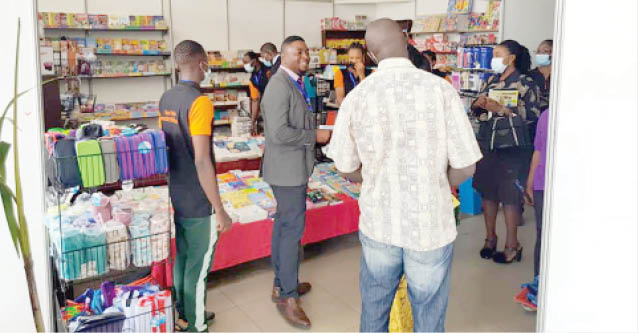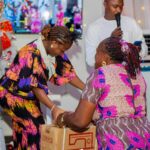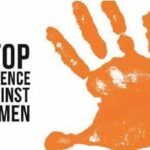Experts and leading speakers, including the first ladies of Ekiti Erelu Bisi Fayemi and Lagos states Dr. Ibijoke Sanwo-Olu as well as Africa’s richest woman, Mrs Folorunso Alakija have added their voices to the need for enterprises in the book value-chain led by women to receive support from commercial institutions, corporate bodies and individuals.
Their calls led moments of awakening the giant in women for the growth of the book ecosystem in Nigeria during the hybrid session of the NIBF 20th edition held at Harbour Point Event Centre, Victoria Island, Lagos from July 27-29.
- PODCAST: COVID-19: Nigerians In Denial As Number of Cases Skyrockets
- ‘How we massage women to fertility’
The First Lady of Ekiti State, Erelu Bisi Fayemi, noted that Nigeria features poorly on most global indicators measuring Gender Equality and Women’s Empowerment (GEWE).
“I am particularly pleased that this year the Nigeria International Book Fair has decided to focus on the role of women to make sure that this ecosystem is robust. Nigerian women have been actively involved in building our communities, so it makes sense when you’re looking to strengthen our ecosystem through knowledge production and dissemination, women can play a key role,” noted Mrs Fayemi, who was the chairperson of the occasion.
She said to awaken the ‘giant in women in the book ecosystem,’ “we should encourage girls to read right from an early age, and not just self-empowerment books or romantic novels.”
Dr. Ibijoke Sanwo-Olu, who was represented by Mrs Edith Egube, wife of the Commissioner for Economic Planning and Budget, said the role of women in helping to significantly improve reading culture, especially among the younger generation, could not be over-emphasised.
Mrs Folorunso Alakija, on her part, said women are underrepresented in the print industry. She said that no gender should be relegated but more women should be encouraged to join the industry.
“As a printer, author, bookseller, I can tell you that I have had my fair share of challenges. However, with persistence, focus and doggedness, I have been able to scale through. Financial institutions need to assist women with friendly loans,” she said.
The keynote speaker at the international conference, Sheikha Bodour Al-Qasimi, who is the President of the International Publishers Association (IPA), Geneva, Switzerland, also spoke extensively on the theme of the event.
The chairman Nigerian Book Fair Trust, Gbadega Adedapo, said that the fair will unlock a lot of potential in women who are nation builders.
“Most of the publishing houses we have today have men at the helm of affairs, but the women are the backbone, doing most of the jobs,” he said.
The chairman, who expressed pleasure with the federal government for transmitting the new Copyright Bill to the National Assembly, urged the federal lawmakers to pass it into law.
According to the Chairman, the main objective of the fair is to promote the reading culture of Nigerians as well as other Africans.
Mrs Ronke Orimalade, a trustee of the board, justified the theme of the book fair, saying: “Women have been in the forefront of bookselling over the years. Even in those days, many women did a lot to promote the sales of educational books. Those who were not educated knew the colours of the prescribed books for the various classes and used that knowledge to get the books to the marketplace.”
Special features of the 2021 book fair were book exhibitions and launches, authors’ grove, presentations, training and workshops as well as Spelling Bee and Mathematics Competition for primary and secondary schools.
The NIBF, reputed to be the second-largest international book fair in Africa, is organized by stakeholders in the book ecosystem such as the Nigerian Educational Research and Development Council(NERDC), Nigerian Copyright Commission (NCC), Nigerian Publishers Association (NPA), Booksellers Association of Nigeria (BAN), Association of Nigerian Authors (ANA), Nigerian Library Association (NLA), Chartered Institute of Professional Printers of Nigeria (CIPPON), Reproduction Right Society of Nigeria (REPRONIG) and National Association of Proprietors of Private Schools (NAPPS).

 Join Daily Trust WhatsApp Community For Quick Access To News and Happenings Around You.
Join Daily Trust WhatsApp Community For Quick Access To News and Happenings Around You.


